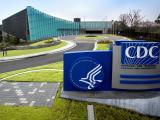May 30, 2008 (CIDRAP News) –The World Health Assembly (WHA) recently approved a global strategy for managing intellectual property issues and made progress on a draft action plan that was presented by a World Health Organization (WHO) working group.
The WHA, which consists of delegates from all WHO member states and serves as the agency's policy-making arm, met in Geneva from May 19 to 23.
Intellectual property rights have become a hot-button issue in global health circles, spurred by Indonesia's decision in early 2007 to cease sharing its H5N1 avian influenza virus samples. The country's stance has raised the possibility that it and other countries affected by H5N1 influenza might claim legal ownership of flu virus samples. Samples are needed to track viruses' transmissibility and drug susceptibility and to develop vaccines.
The WHO's recent work on intellectual property issues is related to but separate from its efforts to broker a virus-sharing agreement.
When the WHO's intellectual property working group met in early April, members reached consensus on all but about 20 of 107 proposed actions. During the WHA, members reached consensus on more items in the draft report. According to a May 28 issues paper released by the WHO, only nine items remain unresolved.
The United States is one of the countries that have opposed or had reservations about some of the items in the working group's draft plan. US Health and Human Services Secretary Mike Leavitt addressed the US government's concerns in a May 19 press conference during the assembly.
Leavitt said the United States was eager to finalize the agreement, but was seeking to maintain strong principles on items such as the need for innovation.
"We obviously have very strong views that intellectual property is the seed or foundation for innovation, and that compromising to the point that innovation is in any way stymied will ultimately cost lives, and that’s not an area where we think compromise should be made," he told reporters.
Despite the lack of a final action plan, the WHA approved a strategy that defines the WHO's roles regarding public health innovation and intellectual property.
"WHO's member states have recognized that market-driven research and development should be expanded to include additional incentives for health needs–driven research and development, and to make these advances affordable and accessible to developing countries," the WHO said in its issues paper.
Aside from balancing innovation with health needs and greater access to treatments and diagnostic tools, the strategy lays out a framework to:
- Assess developing countries' health needs and identify research and development priorities
- Promote work on diseases that disproportionately affect developing countries, along with those that impact vulnerable populations in all countries
- Explore and implement, when appropriate, research and development incentives
- Boost research and development capacity in developing countries
- Improve, promote, and accelerate technology transfer
- Remove access barriers to medical commodities
- Secure research and development financing for developing countries
The WHO said its next step would be to develop a "quick start" program to fund and begin implementing its intellectual property strategy. The agency also stated it would establish a working group to coordinate research and development financing and develop new ways to fund and stimulate research and development.
See also:
WHO intergovernmental working group draft report to the WHA
May 28 WHO issue paper on the WHA's intellectual property progress
Jun 19, 2007, CIDRAP News story "Virus ownership claims could disrupt flu vaccine system"
Oct 17, 2007, CIDRAP News story "WHO report explores patent issues concerning flu viruses"


















